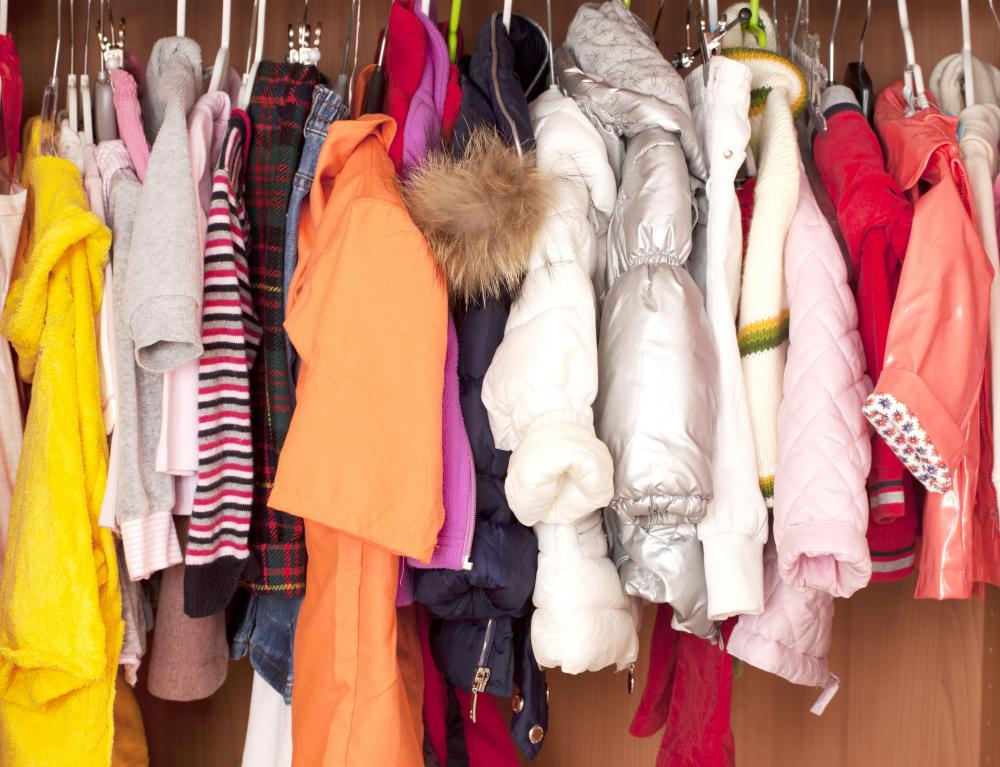At WiseGEEK, we're committed to delivering accurate, trustworthy information. Our expert-authored content is rigorously fact-checked and sourced from credible authorities. Discover how we uphold the highest standards in providing you with reliable knowledge.
What is the Connection Between Clutter and Hoarding?
Clutter and hoarding go hand in hand for individuals with the condition sometimes referred to as compulsive hoarding or "hoard and clutter syndrome." This condition is loosely defined as the excessive gathering of needless items. The home of a hoarder is typically filled with clutter to the point where rooms are no longer usable.
Hoarders deal with many complex issues that prevent them from getting rid of their clutter. Despite any efforts they may make to organize their belongings, the root of the problem lies in the fact that they will not get rid of their clutter or stop hoarding because for them this is a compulsive need. The level of clutter in serious hoarders’ homes can be so severe that it results in unsanitary and unsafe living conditions. Mold, mildew, and rodent and insect infestations thrive in this type of environment.

The piles of paper that many hoarders collect in the form of newspapers, magazines, books, mail, and other documents can make the home a severe fire hazard. Untidy piles of belongings often make it difficult to move from one room to the next. This situation is especially dangerous for elderly family members who are more prone to falling and seriously injuring themselves in an environment of clutter and hoarding.

Helping someone who struggles with clutter and hoarding to reclaim her home can be difficult. Before any physical work can be done, the individual must seek psychiatric help. Many hoarders suffer from a form of obsessive compulsive disorder (OCD), which causes them to continuously bring new items into the home. Behavioral therapy from a trained professional is necessary to relieve the anxiety associated with cleaning out the clutter and to prevent the hoarder from simply returning her home to the previous state in a few months’ time.

Once the individual is prepared to tackle the clutter and hoarding that has overtaken the home, the monumental task of clearing out what is likely years’ or decades’ worth of possessions takes place. Cleaning out the clutter can take months and thousands of dollars’ worth of work, not to mention the cost of repairing a home with water damage, mold, or infestations.

The National Study Group on Chronic Disorganization has created a Clutter-Hoarding Scale that can help concerned friends and family members as well as the hoarders themselves to determine how severe the problem is. Warning signs of a hoarder with a serious problem include passageways narrowed due to clutter, entire rooms that are unusable because of the accumulation of items, obvious household odors, and hazardous messes such as broken glass.
AS FEATURED ON:
AS FEATURED ON:















Discussion Comments
I was surprised to read about how many people really suffer from a hoarding disorder. This goes beyond normal clutter and has implications that most people do not understand. I also read that there are more people who live this way than what many realize. Often times you would never guess from what you see on the outside.
I know some people that are not very good housekeepers and pretty much have a trail through their house. I see this as being more lazy than being a hoarder, but everyone has their reasons for what they keep and what they get rid of.
Some people see keeping broken appliances as being thrifty - because they are going to fix it someday. Others see this as clutter and would not even think about keeping it around.
There have been several television shows and articles written recently on hoarding, which have helped people become more aware of this problem. I think one of the hardest things is to determine what is normal clutter and what is hoarding.
Some people have a very hard time letting go of clutter, whether it be because of sentimental reasons or just throwing anything away is hard for them. It doesn't work for someone to come in and just get rid of their stuff for them because given some time, they will just begin the process all over again.
There are usually emotional issues that are connected with this type of hoarding that need to be addressed. Just getting ridding of the clutter does not solve the problem for them.
Post your comments